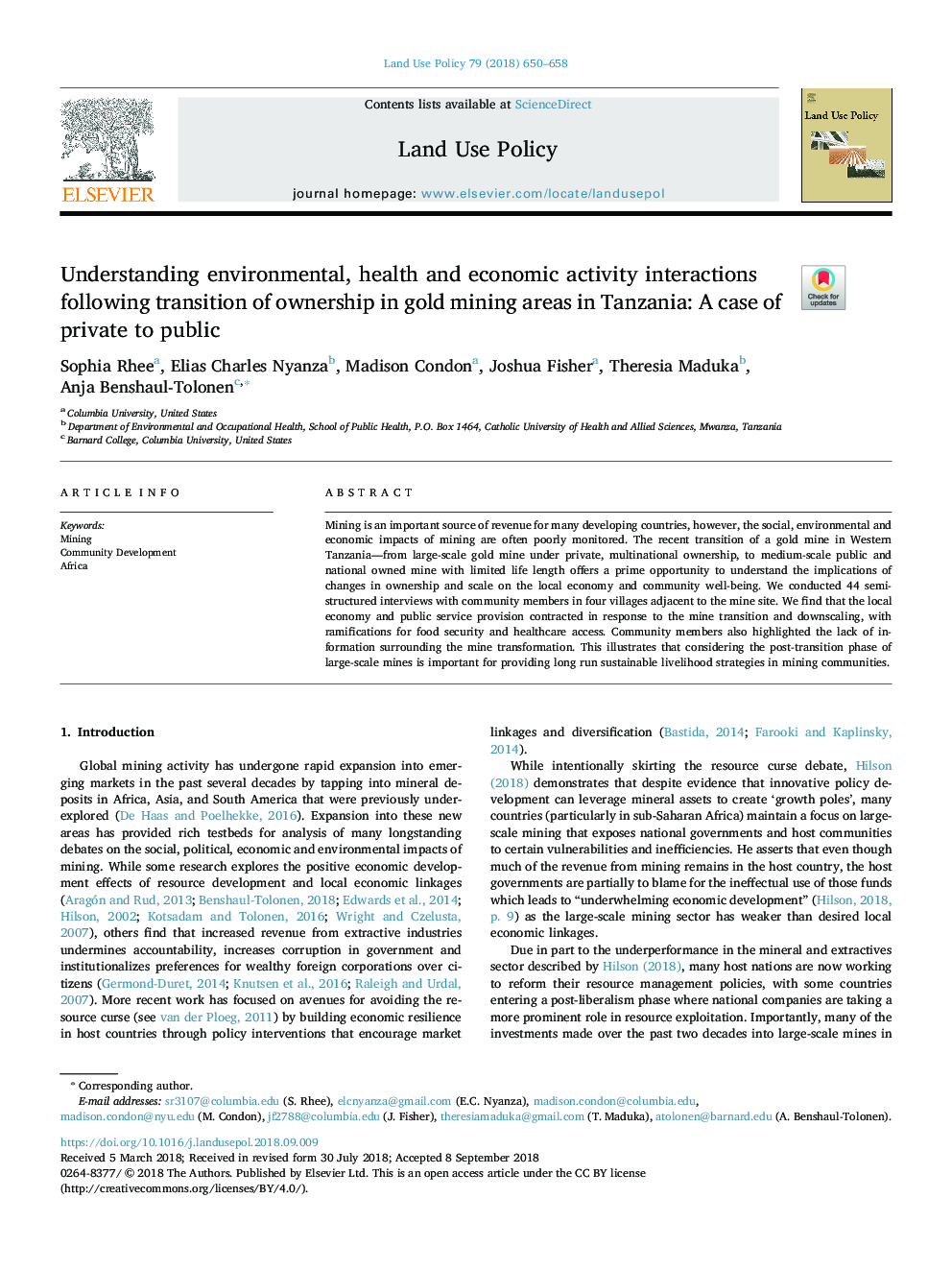| Article ID | Journal | Published Year | Pages | File Type |
|---|---|---|---|---|
| 11000102 | Land Use Policy | 2018 | 9 Pages |
Abstract
Mining is an important source of revenue for many developing countries, however, the social, environmental and economic impacts of mining are often poorly monitored. The recent transition of a gold mine in Western Tanzania-from large-scale gold mine under private, multinational ownership, to medium-scale public and national owned mine with limited life length offers a prime opportunity to understand the implications of changes in ownership and scale on the local economy and community well-being. We conducted 44 semi-structured interviews with community members in four villages adjacent to the mine site. We find that the local economy and public service provision contracted in response to the mine transition and downscaling, with ramifications for food security and healthcare access. Community members also highlighted the lack of information surrounding the mine transformation. This illustrates that considering the post-transition phase of large-scale mines is important for providing long run sustainable livelihood strategies in mining communities.
Keywords
Related Topics
Life Sciences
Agricultural and Biological Sciences
Forestry
Authors
Sophia Rhee, Elias Charles Nyanza, Madison Condon, Joshua Fisher, Theresia Maduka, Anja Benshaul-Tolonen,
